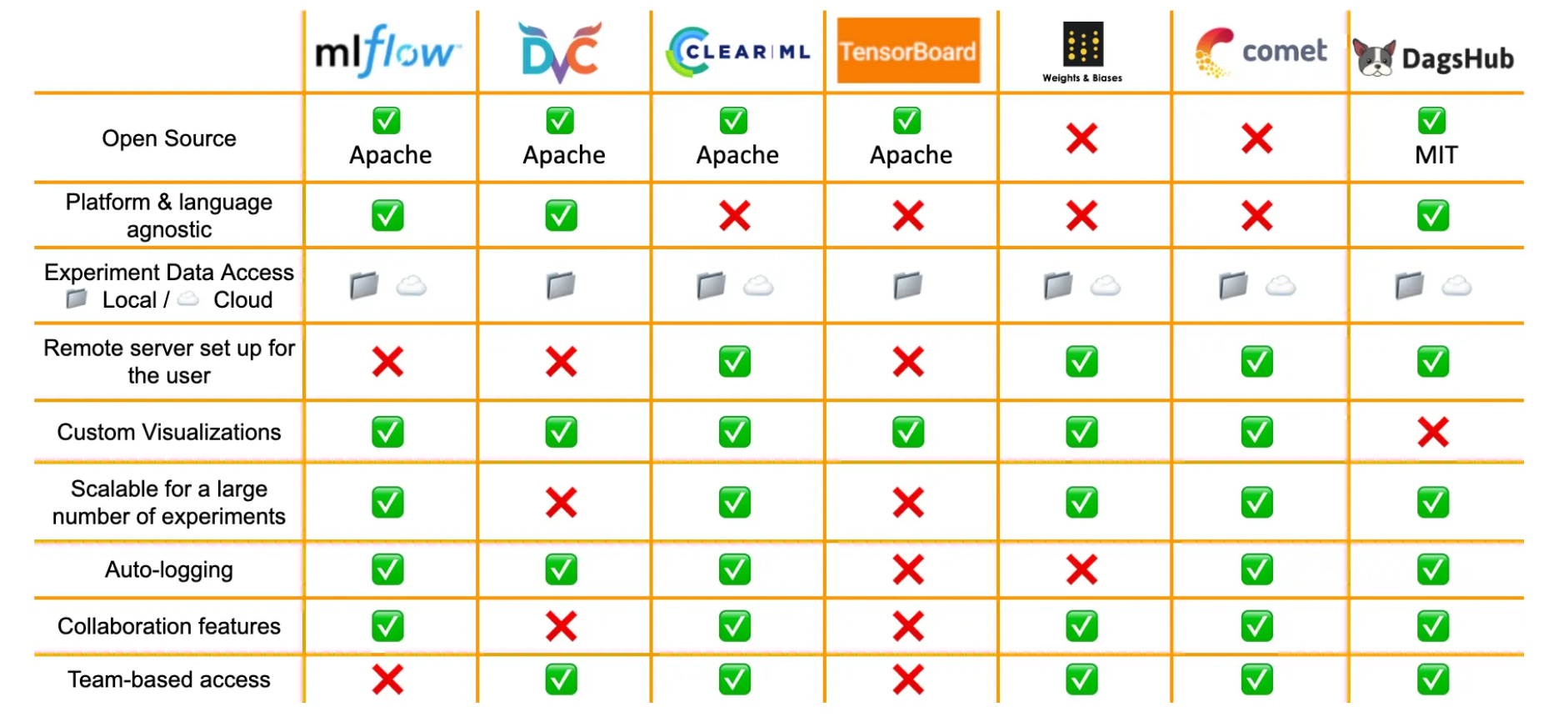Experiment tracking is the process of managing all the different experiments and their components, such as parameters, metrics, models and other artifacts.
Running experiments without proper tools can easily result in a disorganized and unmanageable workflow, even for simple projects. As a data scientist, it is essential to choose the right experiment tracking tool that best fits your needs and workflow.
Why Tracking an experiment:
- Small changes in models and data can significantly impact performance and resource requirements, emphasizing the importance of tracking even minor changes.
- Running experiments can be time-consuming and expensive, so maximizing the usefulness of each experiment is crucial.
Aspect to consider:
- Analyzing and comparing experiment results is an essential part of the ML workflow.
- Organizing and logging metrics, adding tags and notes to experiments, and developing good habits ensure clarity and ease of sharing.
- Sharing experiment results with team members using tools like Neptune AI or Vertex TensorBoard enhances collaboration and discussion.
Tools:
- Pen and Paper :)
- existing tools:

Notebook tools aid in experiment tracking:
- nbconvert: Extracts Python code from notebooks for easier tracking and execution verification.
- nbdime: Enables diffing and merging of Jupyter notebooks.
- jupytext: Converts and synchronizes notebooks with matching Python files.
- neptune notebooks: Assists with versioning, diffing, and sharing notebooks.